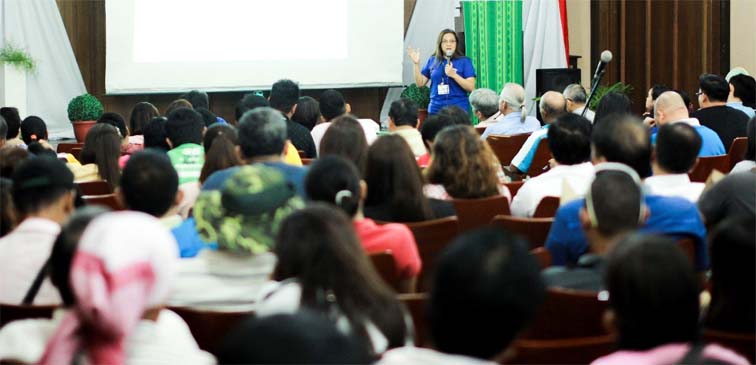 By Jhon Louie B Sabal
By Jhon Louie B Sabal
The Economics Department of Xavier University, in collaboration with the Cagayan de Oro River Basin Management Council and the Archdiocese of Cagayan de Oro, presented the preliminary results of the Total Economic Value (TEV) research study on the Cagayan de Oro river basin for validation by stakeholders.
Representatives from local government units, academic institutions, industries, tourism agencies, indigenous peoples, non-government organizations, fisher folks associations and households gathered on August 10 at the Southeast Asia Rural Social Leadership Institute (SEARSOLIN) to validate the data and give their reactions, clarifications and inputs.
“The IPs will work hand-in-hand and be one with the rest in the protection of the forest and the river basin,” assured Datu Husay who represented the lumad communities. The protection of the forest is an act of respect for them as this has been their dwelling place since the time of their ancestors.
TEV is a component of the Valuing for Ecosystem Services Together (VEST) project of the Research and Social Outreach (RSO) cluster of the university. VEST is a social marketing campaign on Payment for Ecosystem (PES) aimed at encouraging the different sectors to “inVEST” in the sustainable management of forest resources in Northern Mindanao.
To conduct the TEV study, XU tapped the expertise of its home-grown economists Catherine Roween Almaden, Marichu Obedencio, Ma Kresna Navarro and Caroline Laarni Rubio-Serenas. The research team is led by Dr Rosalina Palanca-Tan, an Economics professor at Ateneo de Manila University.
The TEV approach considers all possible benefits to be derived from the CDO river basin, whether “use” values (benefits from using the resources) or “non-use” values (passive use value of the ecosystem and not associated with direct use of resources).
It will provide the basis and justification for the amounts of contribution that may be potentially collected from different economic sectors and groups deriving particular benefits from the ecosystem.
The study also aims to put in place a PES scheme for the CDO river basin that is focused on generating more long-term and sustainable “buyers,” such as households and institutions extracting groundwater from their own deep wells, all white water rafting companies, resorts and aquaculture, in addition to current voluntary commitments from NGOs, cooperatives and businesses.
Ultimately, the researchers hope that the study will lead to policies and interventions by our government for the protection of the river basin.
XU president Fr Roberto C Yap SJ, who is an environmental economist, highlighted the need to measure the economic value of the CDO river basin.
Yap said that there is already the Payment for Ecosystem Services being packaged through VEST, so the new challenge now is to make the program inter-disciplinary by adding an economic component since it is the conceptual root of the PES.
He also added that the TEV study is “very timely and a response to the call of Pope Francis’ encyclical, the Laudato Si.”
XU continues to take part in research engagements and community collaborations for the protection of the environment as part of its mission on the reconciliation with creation.